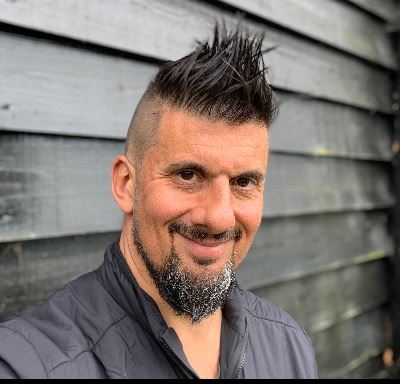
 Released On 31 October 2023
Released On 31 October 2023
Meet the Expert: Rob Stephenson
In the latest interview with our fantastic panel of experts, we meet international keynote speaker, campaigner and wellbeing consultant Rob Stephenson. Rob tells us about his own mental health, where he sees the state of play of wellbeing in the workplace (for men in particular) and the important role that music plays in looking after his own health and wellbeing.
WLC: Please tell us about your background and how you built your expertise in mental health and wellbeing?
RS: I am on the bipolar spectrum and was diagnosed over 20 years ago. In 2017, I decided to share my story more widely. This opened my eyes to the sheer number of people, even in my immediate network, who experience a mental health challenge but do so in silence because of stigma. This motivated me to change my direction and use my skills as an entrepreneur to try to make a difference in workplace mental health and wellbeing. Since then, I have been working with companies and their leadership teams to inspire colleagues to treat wellbeing as a strategic priority and to help colleagues understand that there is no shame in seeking help when they are struggling with their mental wellbeing.
In the last 6 years I’ve had the privilege of speaking at hundreds of all-hands meetings, off-sites and leadership sessions as well as conducting leadership workshops. My biggest learn during this time is that wellbeing is not a nice to have, discretionary benefit. It is both the right thing for companies to get right and is and essential component of sustainable human performance.
WLC: Despite progress being made, conversations around mental health and wellbeing can still feel somewhat taboo in some corporate environments, particularly for men. How can we help to foster more open and accepting working environments where people feel comfortable enough to talk about these topics more freely?
RS: I agree with this. I think the problem comes down to a lack of psychological safety in many workplaces where mental health and wellbeing is concerned. Many people can still feel that they will be held back if they disclose that they need help for a mental health challenge. Many people would not feel comfortable disclosing such a challenge to their line manager. This is further amplified for men who, in many cases, feel that they need to display a certain level of toughness to meet the stereotypical expectations of masculinity.
We can foster more open and accepting cultures by creating psychological safety in our teams. This can be achieved in a number of ways including bringing external speakers in like myself to challenge some of the preconceptions, showcasing role models from within the workplace via storytelling and with senior leaders also being vulnerable about their own wellbeing and mental health.
WLC: How do you look after your own wellbeing?
RS: It starts by becoming self-aware of what is driving my wellbeing. Each day I check in with myself and give my wellbeing a score out of ten and reflect on what the work and personal factors are that are both boosting and limiting my wellbeing. Sleep, exercise, music, and relationships are common personal factors for me and workload, work stress, resources and distractions are common work drivers.
The next stage of the process is to manage my wellbeing with intent, based on the drivers identified above. If I have slept poorly, I might programme in an afternoon nap. I manage stress with a combination of cold-water exposure, mediation, music, and regular micro-breaks in the day.
Overall, I look to take several small wellbeing management steps regularly, building up a big gain over time.
WLC: Please tell us one surprising thing about yourself?
RS: I’m a DJ and Spoken Word Artist. For me, music and the creative process are an important part of my wellbeing. I’ve combined these passions with my love of public speaking to develop a performance called “Harmonising the Mind” which inspires people to think differently about their mental health and wellbeing via the power of music.




